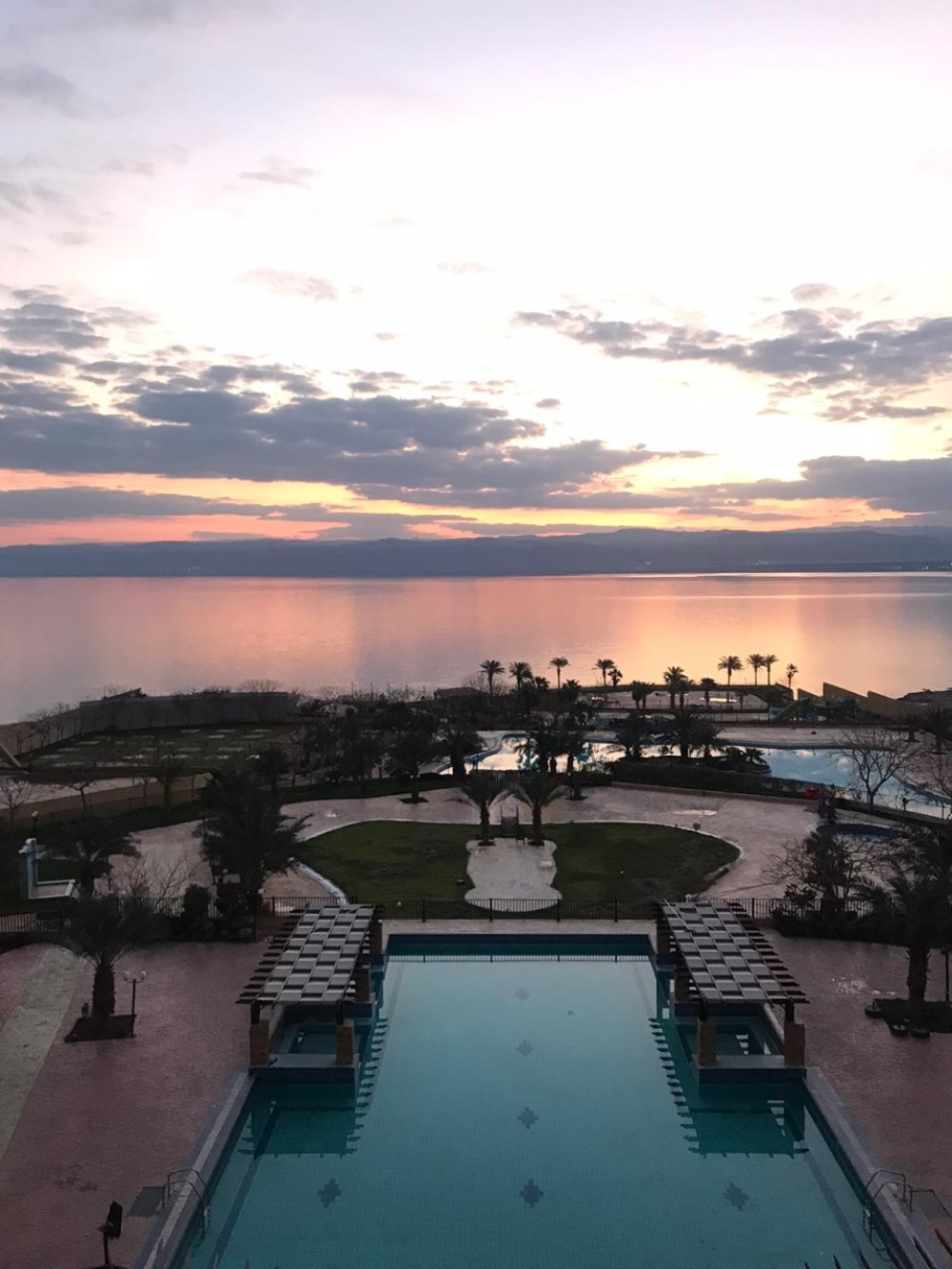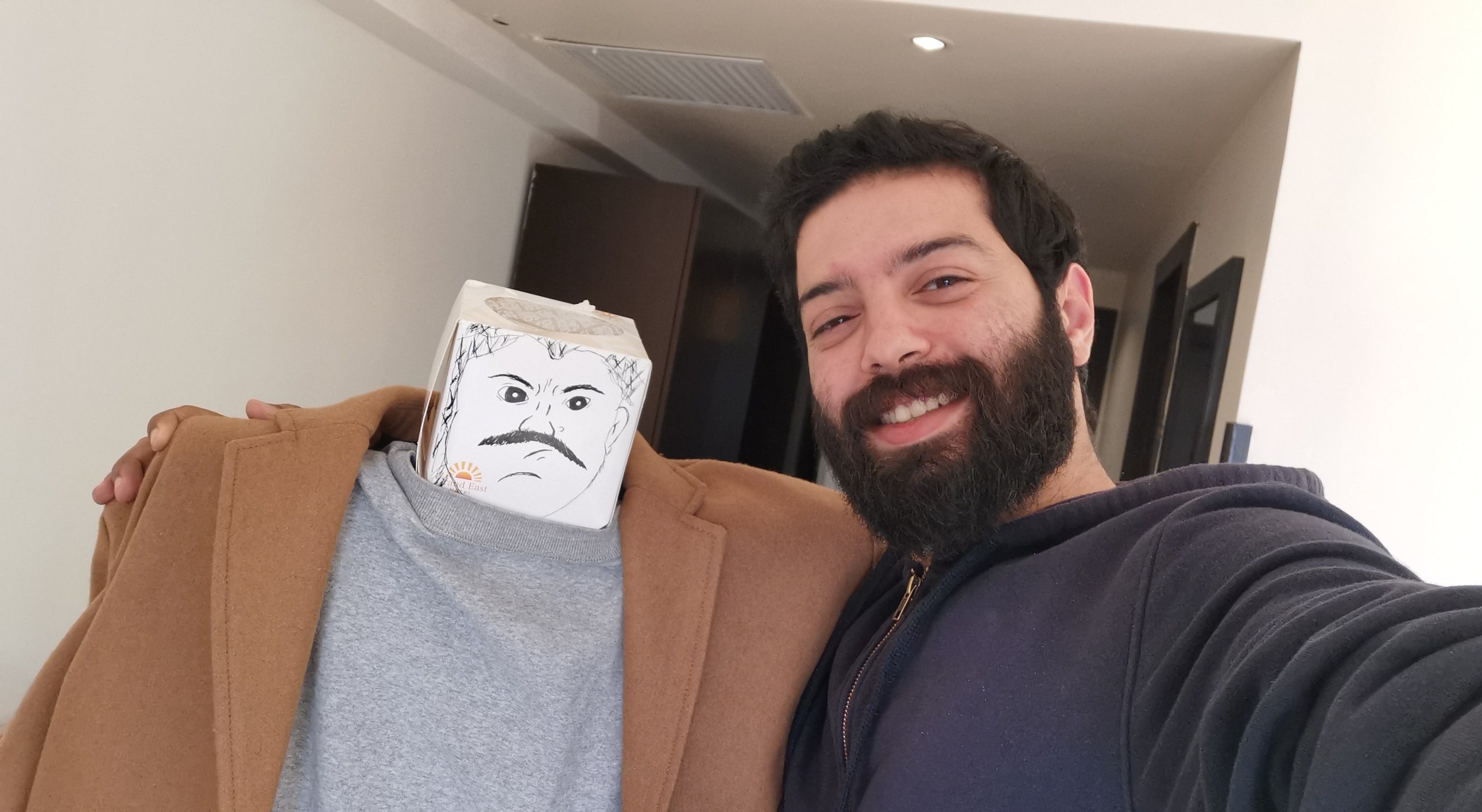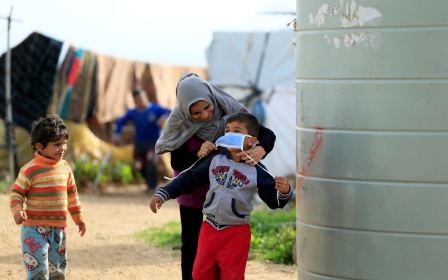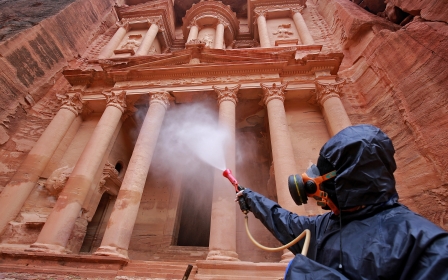Five-star quarantine: Jordan turns luxury hotels into coronavirus isolation centres
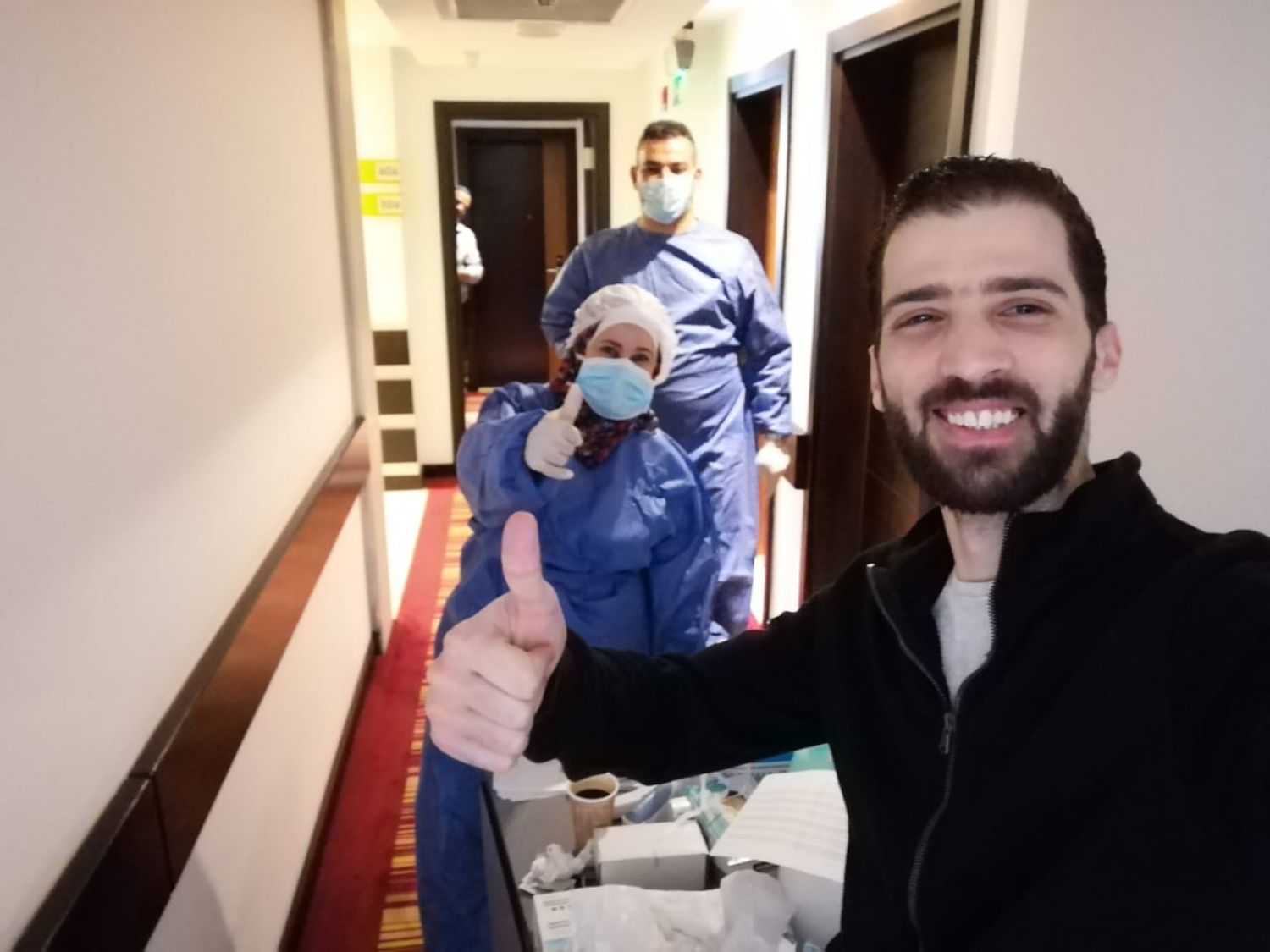
For the past 11 days, Mohammad Sakkijha has gotten room service in a four-star hotel, eating his meals on his balcony overlooking a pool, palm trees, and a stunning view of the Dead Sea.
Sakkijha, however, is not on holiday. He is among 5,800 people in confinement in hotels across Jordan after authorities decided to quarantine all incoming travellers to the country for 14 days on 16 March in order to curb the spread of the coronavirus pandemic in the country.
The decision came 24 hours before Amman suspended all flights in or out of the country out of fear that the disease - officially known as Covid-19 - might further hit Jordan.
Despite the shock of unexpected isolation, those quarantined in Jordan are making the best of a bad situation, conscious that they are living out their pandemic-mandated confinement in exceptional conditions as they find creative ways to cope with the loneliness and boredom.
Precautionary measures
New MEE newsletter: Jerusalem Dispatch
Sign up to get the latest insights and analysis on Israel-Palestine, alongside Turkey Unpacked and other MEE newsletters
Jordan has distributed the thousands of travellers in need of confinement in 34 hotels across the country, Ministry of Health spokesman Natheer Obeidat told Middle East Eye.
In total, 3,104 people are housed in 23 four- and five-star hotels in Amman, 1,923 in 10 Dead Sea resorts, and another 23 in a hotel in Aqaba. And they are all under around-the-clock security restrictions.
“The hotels were disinfected before the people arrived and will be disinfected again when they leave,” Obeidat said, adding that the ministry would ask people to self-quarantine in their homes a further 14 days as a precautionary move upon leaving the hotels.
Speaking to Jordan TV, Minister of Health Saad Jaber estimated that the cost of keeping people under quarantine amounted to between $169 and $253 per day to ensure adequate supplies as well as medical protective gear for staff.
By contrast, Jaber said treatment for a patient infected by the coronavirus would cost around 1,200 Jordanian dinars ($1,690) a day.
As of Thursday night, Jordan had 212 confirmed cases of Covid-19, many of which were contaminated at a wedding in Irbid, where the father of the bride had recently caught the virus after traveling to Spain.
Jordan has not recorded any fatalities thus far due to the virus.
Coming to terms with quarantine
Jordanian medical services are supervising those under quarantine which include 44 people who were transiting through Amman, 4,243 Jordanians, and 1,513 foreigners.
Sakkijha, who runs a production company in Dubai, was travelling back to Jordan due to a family emergency on 16 March when he was put into isolation.
“I returned to Jordan because of the death of my sister’s husband,” he told MEE. “It was an emergency and I wanted to be supportive of my family.
“My wife had told me that things were not stable and that I might be placed under quarantine, but I didn’t care. I traveled to Jordan wearing a protective mask and carrying disinfectant.”
But upon arriving at the Amman airport at 10 am that day, Sakkijha thought he would undergo a simple medical check after going through customs.
“But then I was surprised to be taken to a hotel in the Dead Sea in a Jordanian army bus.”
'I wake up in the morning, have my coffee, play with my daughter and try my best to break the monotony'
- Hanna Yazbaq, Jordanian under quarantine
Sakkijha was among the first group of people to be taken to the hotel.
“We were sent to different rooms at the Dead Sea hotel,” he recalled. “Initially, I was in denial about the idea of quarantine, but as days went by, I became convinced that this was done for my own safety and that of society. This is when I started getting used to the new situation and decided to do my work remotely.”
Among those quarantined is well-known Jordanian radio personality Yazan Hamed, who anchors a show on Mazaj FM.
After flying in from Istanbul on 16 March, Hamed was taken to a five-star hotel in Amman. From his hotel room, he has continued to broadcast his daily newscasts using his phone and Facebook Live.
“It has been ten days and we have everything,” he told MEE. “Food is varied and every day the chef tries new ideas that are tasty. There is also a medical team that regularly checks on us”
While remaining positive, Hamed conceded that the isolation did become heavy at times.
“It is trying and boring because we don’t communicate with anyone,” he said. “We received a message from Minister of Health Saed Jaber in which he gave us instructions to stay in our rooms for the entire period and not to interact with others - because if they find out we did, we would be kept another 14 days to ensure we don’t have the virus.”
Books, food and imaginary friends
While the individuals who spoke to MEE expressed gratitude for the care they were given in quarantine, all spoke of the ways they found to keep themselves busy while cooped up; whether by cleaning their rooms or finding both conventional and creative ways to stay busy.
Hanna Yazbaq is another Jordanian who was quarantined upon returning from Abu Dhabi. She has since been documenting in detail her stay with her young daughter.
“I wake up in the morning, have my coffee, play with my daughter and try my best to break the monotony I feel,” she read from her diary. “They bring us breakfast at around 8 am and then I go out on the balcony and enjoy the clean air. I bring my daughter with me to enjoy the sun as much as possible.
“I try to find ways to overcome the fact that we don’t move around and we spend long hours without much movement because if we don’t this could cause her developmental problems, especially if the quarantine period extends,” she added.
In order to overcome boredom, Sakkijha told MEE that he has found a variety of activities besides work to keep himself busy.
“I began spending time reading. I wake up and look at the sea and enjoy the three hotel meals a day that are of good quality and varied,” he said.
Sakkijha also created an imaginary friend called Rabah, drawing a face on a box and dressing him in a shirt and a jacket, saying he found it helpful to have someone to talk to while cooped up in his room overlooking the sea.
He told MEE that Jordanian authorities have been providing psychological support to people who are quarantined with the help of specialists in the field.
Despite being prevented from meeting in person, the quarantined hotel guests said they have been able to communicate with each other from their respective rooms and balconies.
“We shouted from our hotel balconies in support of the medical team and in support of Jordan,” Hamed, the radio show host, said. “This made me cry.”
Banan Qottous is with her mother and aunt in a Dead Sea resort after the three women flew back to Jordan from the UAE.
Qottous has been publishing a daily diary of her life under quarantine on Twitter, asking her followers to send her links to books she can read.
“I spend my time reading, looking at the sea and spending time with my mom,” she told MEE.
Um Samir has also been under quarantine since she returned from Dubai where she was visiting her daughter who had recently given birth. The 70-year-old woman told MEE she has been spending her time “connecting with my family, talking on the phone and using video applications”.
“I never expected to be under quarantine, but now that this has become a fact, we have accepted it because it is for our safety,” she said. “There are other countries where the virus is spread widely. We don’t want to have anything like that.”
Middle East Eye delivers independent and unrivalled coverage and analysis of the Middle East, North Africa and beyond. To learn more about republishing this content and the associated fees, please fill out this form. More about MEE can be found here.


